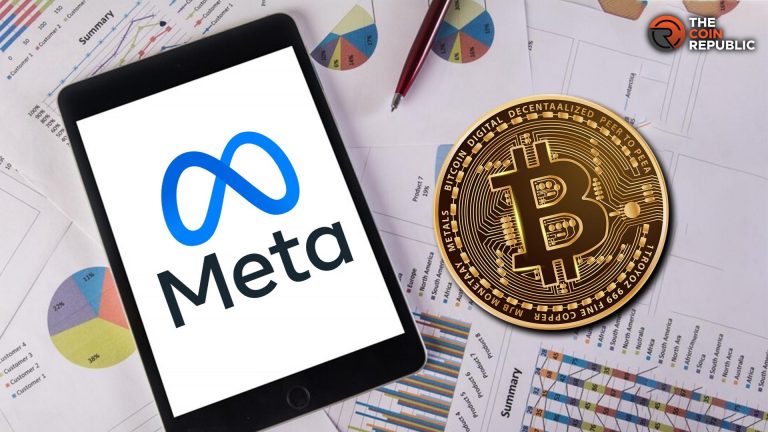
A Meta shareholder has proposed a plan for the company to consider adding Bitcoin to its corporate treasury. The proposal, submitted by Ethan Peck, on behalf of his family’s shares, emphasizes Bitcoin’s potential as an inflation-resistant asset and highlights its significant growth over recent years, with Bitcoin increasing by 124% in 2024 alone and 1,265% over the past five years.
Bitcoin has a capped supply of 21 million coins, which contrasts with fiat currencies that can be printed in unlimited quantities by central banks to manage economic conditions. This scarcity could theoretically increase Bitcoin’s value as fiat money loses purchasing power due to inflation.
The argument made in the proposal is that Bitcoin could serve as a hedge against inflation, potentially safeguarding Meta’s $72 billion in cash reserves, which are currently vulnerable to depreciation due to inflation. This move aligns with trends where other corporations have begun to adopt Bitcoin as a strategic asset, including companies like MicroStrategy. The proposal suggests that Meta’s board should evaluate Bitcoin as a treasury asset, positioning it as an opportunity for Meta to lead in financial innovation.
Register for Tekedia Mini-MBA edition 19 (Feb 9 – May 2, 2026): big discounts for early bird.
Tekedia AI in Business Masterclass opens registrations.
Join Tekedia Capital Syndicate and co-invest in great global startups.
Register for Tekedia AI Lab: From Technical Design to Deployment (next edition begins Jan 24 2026).
Unlike traditional currencies, Bitcoin is not controlled by any central authority or government. This means that its monetary policy cannot be altered to inflate the supply beyond what is programmed into its protocol, which could protect holders from currency devaluation caused by central bank policies.
Over certain periods, Bitcoin has shown a negative correlation with traditional financial assets like stocks and bonds, especially during times of economic uncertainty or high inflation. For instance, during the high inflation periods of 2020-2021, Bitcoin’s price significantly increased, which some investors interpret as a sign of it acting as an inflation hedge.
Holding Bitcoin would diversify Meta’s asset base beyond traditional cash equivalents like bonds, stocks, or government securities. This could potentially reduce risk if traditional markets underperform, especially during times of inflation or currency devaluation.
This move could signal Meta’s strategy in embracing digital assets and cryptocurrencies, positioning the company as an innovator in financial technology. It might attract a different demographic of investors and users interested in or involved with cryptocurrency.
It could be seen as an endorsement of cryptocurrency’s legitimacy in corporate finance, potentially leading to broader acceptance and use of Bitcoin in business transactions or as part of corporate financial strategies.
Market Impact: If a significant company like Meta holds Bitcoin, it could influence the market by increasing demand for Bitcoin, potentially affecting its price.
Such an action might also encourage other corporations to consider similar strategies, thus reinforcing Bitcoin’s role in the financial ecosystem.
Risk Management: Bitcoin is known for its volatility. Holding Bitcoin would expose Meta to this volatility, which could either significantly increase or decrease the value of its treasury. This requires sophisticated risk management strategies to mitigate potential losses while capitalizing on gains.
Regulatory and Compliance Considerations: Holding Bitcoin would require Meta to navigate complex regulatory environments concerning cryptocurrencies, which vary by country. This includes considerations around taxation, reporting, and compliance with financial regulations.
Liquidity Management: Bitcoin, while increasingly liquid, is not as liquid as traditional cash equivalents. Meta would need to manage how much of its assets are in such a less liquid form, ensuring it doesn’t impact its operational liquidity.
Accounting and Reporting: There would be new considerations for how Bitcoin is accounted for on Meta’s balance sheet, with potential implications for earnings volatility due to Bitcoin’s price fluctuations. This might affect how investors perceive Meta’s financial health.
Long-term Investment vs. Speculation: The decision to hold Bitcoin could be interpreted in different ways – as a long-term investment in a new asset class or as speculation on Bitcoin’s future value. The intent behind this move would influence how it’s viewed by markets and regulatory bodies.
In essence, holding Bitcoin as a treasury asset for Meta would mark a significant shift in corporate finance strategy, embracing the digital asset revolution while also taking on new forms of risk and opportunity management.



